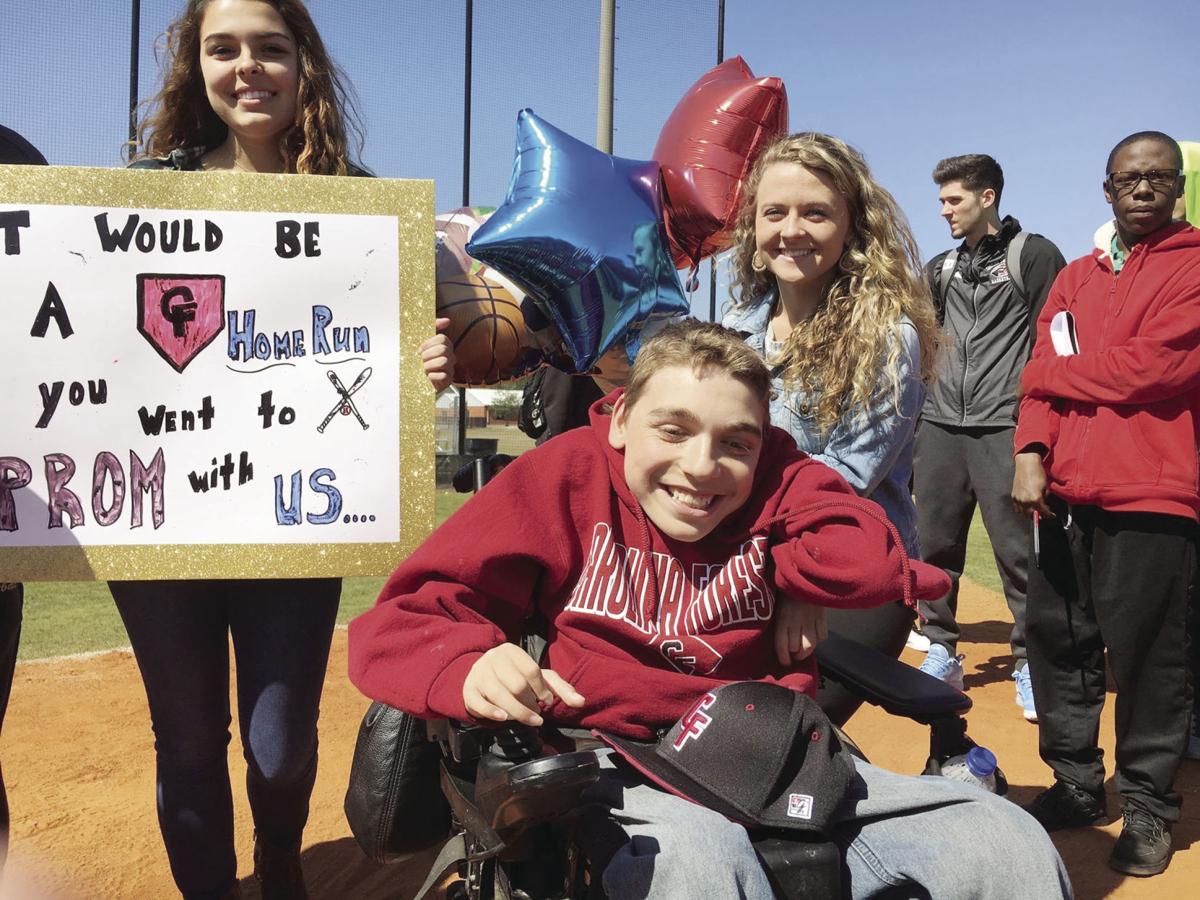I was born with a medical condition that has left me in a wheelchair my entire life. However, I’m so amazing that despite that, I go to college, paint, write, watch TV and leave the house. I do normal things, yet my legs don’t work. Exceptional, right?
Blech!
The paragraph above is an example of inspiration porn, which entails calling a person inspiring just because they have a disability. It was a term coined by the late Stella Young during a 2014 TEDxTalk. In the comment section below the video, many disabled people shared similar stories and complaints about the special treatment that they receive. Some ways that able-bodied people give inappropriate special treatment is through offering the disabled some sort of award, telling the individuals that they’ll pray for them and writing sob-stories. Though people’s intentions may be good, the extra attention is insulting. An example of this concept in the media is in this clip from the TV show “Speechless,” in which a random student uses JJ, who has cerebral palsy, as his topic for an essay contest.
What inspiration porn insinuates is that having disabilities is negative. Sure, disabilities bring challenges, but doesn’t everyone face challenges? In a Season 2 episode of “The Office,” Michael burns his foot on a George Foreman grill and believes himself to be temporarily disabled. Because the staff isn’t taking him seriously, he brings in a man in a wheelchair to talk about what it’s like to live with a disability. Michael tries to make it seem as if the man’s condition is a very grave, serious thing, but the guy is chill and even cracks a joke, saying that he doesn’t even notice the chair anymore. Jim responds to Michael’s antics, saying, “I want to clamp Michael’s face in a George Foreman grill,” and in doing so, effectively describes how the majority of the disabled community feels about such actions.
One of the products of inspiration porn is pictures of disabled people with sayings such as “The only disability is a bad attitude” or “If she can do it, you can too” pasted next to a photo of an amputee-turned-athlete. Because of the idea that a disability is a terrible state of being, handicapped people are objectified and put on the same level as posters of kittens dangling off a branch with the phrase “Keep hanging on.” These kind of portrayals make it seem as if the disabled community exists solely to motivate and inspire the able-bodied.
Like Young said in the beginning of her video, a student at a school she was working at once asked when Young was going to make a speech, because that’s what disabled people do; it’s pretty much expected that the handicapped will be inspiring. Blind YouTuber Molly Burke mentions in a video that someone once came to her channel and was disappointed because she’s normal and not the super-inspirational stereotype that the person was used to seeing.
When someone approaches a person with a disability and calls them inspiring, brave or gives them pity, it’s also demeaning. I remember going to church and having the women put their hands on me and pray. Their intentions were good, but I would come home feeling awful about myself. They made me feel like my chair was a burden and that people didn’t see me as the grown-up person I was trying to be, especially in my mid-teens when I was transitioning between child and adulthood. However, treating the handicapped this way makes able-bodied people feel better about themselves, because they feel that they gave the poor, unfortunate souls the necessary boost that they need to keep on living a normal life. Since no one told me I inspired them today, I guess I’ll hole myself up in my room with the lights off and look at my chair in disdain.
Inspiration porn doesn’t just apply to disabled people doing regular things; it also applies to able-bodied people doing nice things for them. This type of content floods the internet around homecoming and prom season when a student, typically a male, asks someone else to be his date. The date in question has a physical or mental handicap, so the headlines will make it seem as if no one would’ve asked out the individual if the guy hadn’t swooped in and rescued him/her.

In reality, the pair were most likely friends or dating to begin with, but the media skews it so that the person doing the asking-out only did it because the other person has a disability. Not only does this type of inspiration porn bring the same effects as the other previously mentioned varieties, it also gives the impression that handicapped people are rarely dateable, and that those who go on a date with them are heroic for doing so.
Unfortunately, as result of the inspiration climate that exists around the handicapped community, sometimes disabled people are forced to turn themselves into inspiration “porn stars” just to get what they need. For instance, if they are trying to raise money for a charity or win a contest, instead of doing so on their merit, the handicapped individual is expected to plead their sob story about being cursed with a disability that they have spent their entire life overcoming. My mom and I came across a situation like this when we were entering a contest to win a wheelchair van. To enter, my mom had to write about why I’m a hero in order to convince people to vote for us. Naturally, the most inspiring story won the contest.
Inspiring others just by having a disability cannot always be avoided. As Burke mentions in her video, nothing can prevent a person from being inspired. I know I get inspired when I see handicapped people do regular things, but that’s because I’m also disabled and I like to see others like me accomplish similar goals. For able-bodied people, it’s cringe-worthy inspiration porn, but for the disabled, it’s a role model type of situation. I hope that, eventually, the objectification of handicapped people through inspiration porn will end and that disabilities will be normalized. When this happens, it will let the world know that they’re just regular people, for both the abled and disabled alike.













